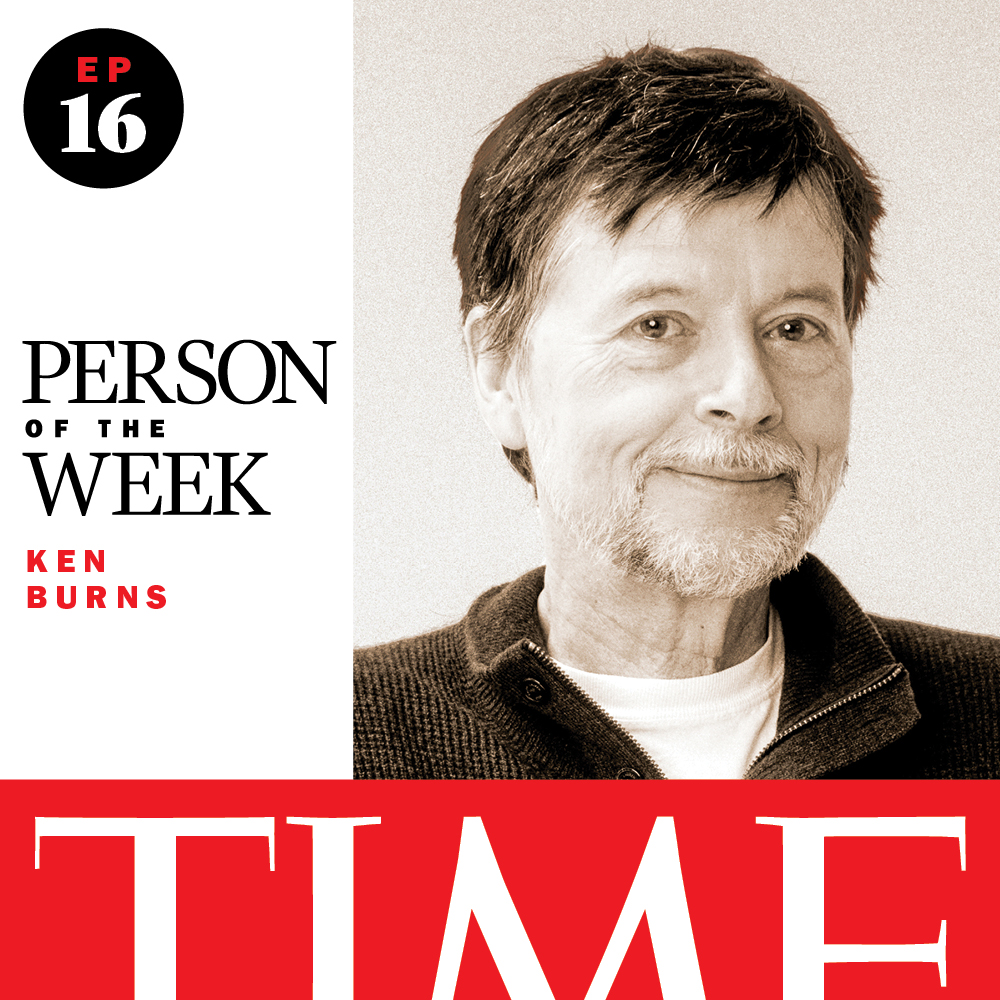Ken Burns is America’s history teacher. Over nearly fifty years of making documentary films, Burns has not only defined the genre of historical documentary; he’s also become one of the most respected narrators of our shared national story. From the Civil War to the Roosevelts, from baseball to jazz, Ken Burns helps America understand itself by helping it understand its past. When you think of a history documentary, you’re probably thinking of Ken Burns.
His newest project, The American Buffalo, is an examination of the clash between American Western expansion and Native American sovereignty, and the importance of the Buffalo to our shared American history.
Burns has been nominated for 17 Emmys, won 2 Grammys, and has been nominated for 2 Oscars. And his work is especially important right now, at a moment when America’s internal divisions are playing out in heated debates over how history is taught, whose perspectives should be included, and what “real” American history actually means.
Tune in every Thursday, and join us as we continue to explore the minds that shape our world. You can listen to the full episode in the player above, but here are a handful of excerpts from our conversation, which have been condensed and edited for clarity.
How his mother’s death influenced his fascination with historical documentary:
The reason why I do what I do is in part out of that tragedy. Because my dad never cried, not when she was sick, not when she died, when I was 11, not at her terribly painful funeral, but the next year when I was 12, he and I would watch movies together, and he started to cry at an old movie… And I suddenly realized that film offered him a kind of emotional safe harbor to express things that he couldn’t really express. And I remember being 12 and going, I want to be a filmmaker.
My late father in law, who was an eminent psychologist, I went to him when I was 39 or 40 and in the middle of a crisis of some kind. And I said, I seem to be keeping my mother alive. I can never remember the date when she died. I could see April 28th approaching and then I could see it receding, but I was never present for that day all through the end of my childhood and all through my adulthood. And he said, “yeah, I bet you blew out your candles at every birthday wishing that she would come back,” and I go, “how did you know?” And then he said, “that’s the magical thinking of an eleven year old, but look what you do for a living.” And I said, “what?” He said, “you wake the dead. You make Abraham Lincoln come alive: who do you think you’re really trying to wake up?”
On why he chose to make his latest film, The American Buffalo:
[For] many of the Native tribes on the Great Plains, the buffalo is at the center of their religious ceremonies, it’s at the center of their creation myths, it’s at the center of rituals. It is an animal that sustains them in every regard, from the tail to the snout. Everything was used, every part of this animal was used and revered, and then, in the 19th century, the slaughter began. And after the Civil War, it took up at such an alarming rate when it was discovered that buffalo hides would drive the belts of the Industrial Revolution.
It is an incomprehensible thing that you can have the biggest land mammal in the United States now, our national mammal, go from 30-35 million to, by the end of the 1880s, under a thousand, of which maybe only a couple dozen are wild and free…we really brought this magnificent animal to the brink. And a lot of it had to do not just with the market demands, but with the understanding that if you killed the buffalo, you would be also killing the Indian… And so intertwined with the story of an animal is the whole history of us and what manifest destiny means, what it did and what it didn’t do…
The whole story is so connected and interconnected. It is such a complex tragedy and also, at the end, the beginning of an uplift. You’re really covering so much about who we are.
On why right-wing culture warriors are targeting history classes:
It’s just the natural impulse of authoritarianism to do that. It makes things simpler to explain when, in fact, nothing on this earth is simple to explain… I mean, we talk about the Soviet examples where they’re editing people out of a photograph. Somebody all of a sudden doesn’t exist anymore. This is incredibly familiar to anyone who studies history. And so, all you need to do is push back.
It’s gonna be okay. We’re gonna get through it. We’ve been through periods that are far worse than this, and we have a system that, for all of its flaws, and all of its blindnesses, and all of the tragic compromises necessary for its creation, nevertheless is one of the best forces in the history of the world. And having been someone who spent their life being, not critical, but just trying to be honest about what happened, I would lay the United States for all its clear and horrific mistakes up against any institution in the history of humankind, and defy you to come up with a better record.
- What Student Photojournalists Saw at the Campus Protests
- How Far Trump Would Go
- Why Maternity Care Is Underpaid
- Saving Seconds Is Better Than Hours
- Welcome to the Golden Age of Ryan Gosling
- Scientists Are Finding Out Just How Toxic Your Stuff Is
- The 100 Most Influential People of 2024
- Want Weekly Recs on What to Watch, Read, and More? Sign Up for Worth Your Time
